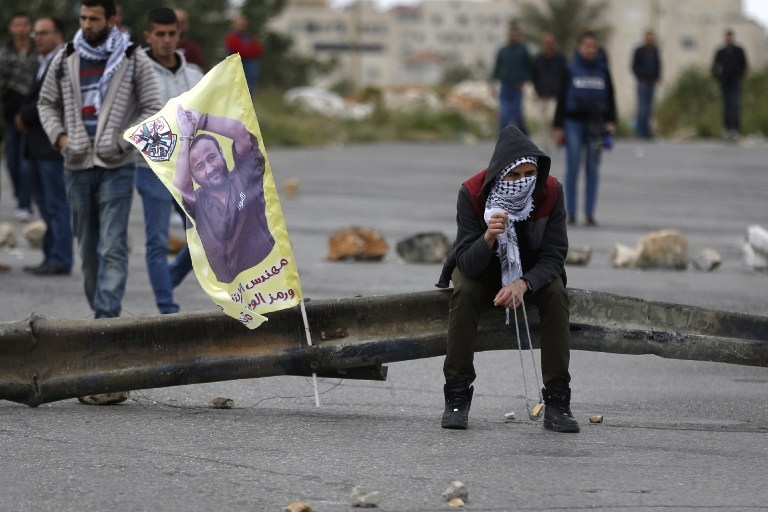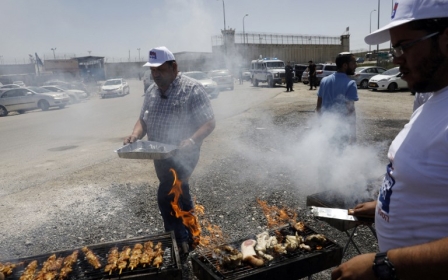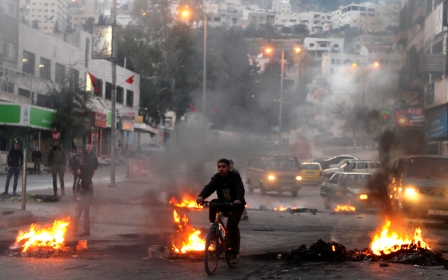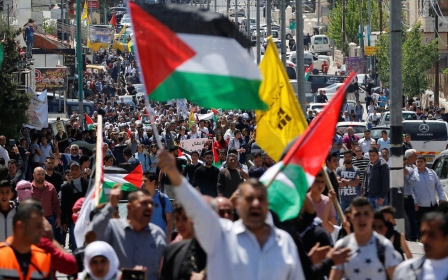Barghouti's health declines week into hunger strike, says NGO

Palestinian leader Marwan Barghouti's health has declined seriously over the past week after he joined a hunger strike with more than 1,000 other prisoners in Israel, an NGO said Monday.
Barghouti, 57 and serving five life sentences over his role in the second Palestinian intifada, is refusing medical treatment, according to Amani Sarahneh of the Palestinian Prisoners' Club.
He told AFP this was causing his health to decline seriously.
The hunger strike began on 17 April, with those taking part ingesting only water and salt. They have issued demands ranging from better medical care to phone access.
Asked about Barghouti, however, an Israeli Prisons Service spokesman said that "no decline in his health condition has been observed".
If Barghouti feels bad, all he has to do is eat
- Israeli prisons service spokesman
"If Barghouti feels bad, all he has to do is eat," the spokesman told AFP.
According to the NGO, authorities at the Jalame prison, where Barghouti was transferred and placed in solitary confinement after the strike began, have pressured him to accept medical treatment and also urged other prisoners to try to convince him.
Fellow prisoner Nasser Abu Hmeid refused, according to Palestinian news reports, saying: "If Marwan Barghouthi dies, he will die a martyr."
Some 6,500 Palestinians are currently detained by Israel for a range of offences and alleged crimes.
Around 500 are being held under Israel's system of administrative detention, which allows for imprisonment without charge.
Palestinian prisoners have mounted repeated hunger strikes, but rarely on such a scale.
Barghouti is popular among Palestinians, with polls suggesting he could win the Palestinian presidency.
He was convicted of attacks that killed five people, though declined to defend himself and did not recognise the court's legitimacy.
For Palestinians, the prisons have become a stark symbol of Israel's occupation.
Some 850,000 Palestinians have been incarcerated since the start of Israel's occupation 50 years ago, Palestinian leaders say.
Palestinian leaders have denounced Israel's refusal to negotiate with the hunger strikers, warning of a "new intifada" if any of them die.
Demonstrations have been held in the occupied West Bank and the Gaza Strip to support the prisoners, occasionally resulting in clashes with Israeli forces, though they have been limited in number.
A Palestinian former minister, Hamas member Wasfi Kabha, released on the fourth day of the hunger strike, said on Facebook that Barghouti had told him "the strike aims to achieve more humane, fairer and more dignified prison conditions".
New MEE newsletter: Jerusalem Dispatch
Sign up to get the latest insights and analysis on Israel-Palestine, alongside Turkey Unpacked and other MEE newsletters
Middle East Eye delivers independent and unrivalled coverage and analysis of the Middle East, North Africa and beyond. To learn more about republishing this content and the associated fees, please fill out this form. More about MEE can be found here.




